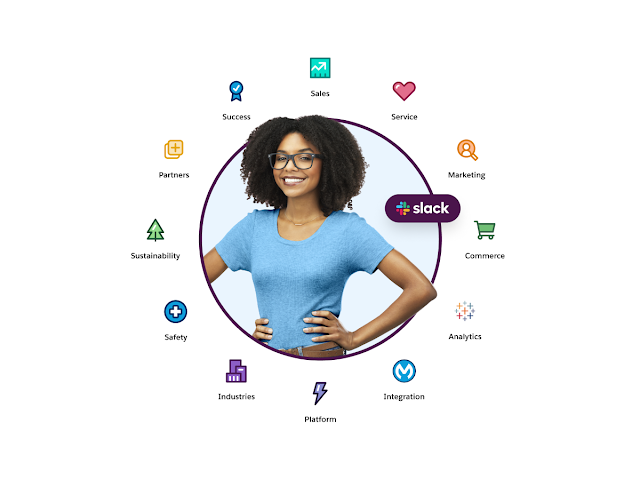Top 12 Salesforce Business Analyst Skills You Must Have
Salesforce business analysts are the key players of Salesforce. They help define goals and processes for the organization and then build efficient strategies to achieve them. They also have to supervise different organizational departments to ensure everything runs smoothly. Business Analysts have very tough roles in their day-to-day business operations. To master this role, you must be aware of the top 12 Salesforce Business Analyst skills so that you can perform better in your job responsibilities.
Top 12 Salesforce Business Analyst Skills
1. Strong analytical skills
Analytical skills are important for business analysts. Analytical skills help you analyze data and make decisions, solve problems, and make better business decisions. You'll use analytical skills to understand your customers or the market to offer better products or services that meet their needs than anyone else's.
2. Strong interpersonal skills
Strong interpersonal skills are essential for any business analyst. This can include listening to the customer, understanding their needs, communicating effectively, and empathizing with their situation. You should also be able to deal with conflict professionally without becoming defensive or argumentative.
3. Salesforce Product Expertise
You must be able to use Salesforce products. This means you know how the product works, what it can do, and how to use it. You should also explain how the product works in simple terms so others can understand it.
You must know how to show others how Salesforce products work. Your role requires strong communication skills so that you can effectively teach others about your findings and recommendations for improvement within their organization's current state of operations using the platform itself rather than simply writing out long reports full of jargon-filled text which nobody cares about anyway! When working with clients or colleagues, your ability as a business analyst will determine whether or not they adopt your recommendations successfully (or even at all).
4. Documentation
One of the most important skills a business analyst must possess is documentation. Documentation is an essential part of your role, and it will help you stay organized and efficient during projects.
Several types of documentation should be included in your toolkit:
- Clear, concise written instructions for how to use new features or functions in Salesforce (e.g., "Click here to add this field")
- A list of features available in Salesforce so that everyone on your team knows what's available (e.g., "This feature allows us to track...")
- A glossary of terms related to your project or industry that may not be familiar (e.g., "What is 'lead scoring'?")
5. People Management
- People Management: You should understand the needs of your team and manage them accordingly. This includes managing projects, priorities, and deadlines; managing expectations; handling conflict resolution, performance, and relationship management.
- Communication Skills: This skill is very important as it helps you communicate with people from different backgrounds, cultures, and languages.
6. Project Management
Project management is a process that helps you to plan, execute and control the work of your team members. In Salesforce, project management can be done using Chatter (a social media platform), Events, or Workflow.
Here are some tips on how to manage projects in Salesforce:
- Create a project board where you can share information about the status of your projects with your team members. You can also add files related to each project, like PowerPoint presentations or PDFs containing details about the task. This helps everyone stay updated on what's happening within their respective departments, so they don't have any questions about meetings later!
- Use Chatter groups as discussion boards where people post questions about our workflow process, so we know who needs help next time we're working together again."
7. Gripping Business Processes
Business processes are the backbone of any business, and as a business analyst, you must understand and explain them to the rest of your organization. You'll also need to communicate with all stakeholders- from customers and suppliers to employees- to gather their input on improving processes.
Business analysts deeply understand how these processes work together, so they're well-equipped to analyze how well they are working now and what changes may improve them in future iterations.
8. Analysis
The ability to analyze data is an essential skill for any business analyst. You must be able to understand and make decisions based on your information, identify patterns in it, make predictions based on those patterns, and then recommend actions that will help achieve your organization's goals.
The best way to develop these skills is through experience:
- Observing how other people analyze data.
- Learning about different analytical methods.
- Experiment with different analysis types until you find one that works for you.
9. Data Management
Data management is a critical skill for a business analyst. To be effective, a business analyst must be able to manage data in the cloud and understand how various departments within an organization can leverage it. They should also be able to create reports from this information and provide recommendations based on their findings.
10. Organization
The organization is the cornerstone of any business analyst's success. You must have excellent organizational skills to complete your tasks on time and stay organized. As a Business Analyst, you will be responsible for managing multiple projects simultaneously, working with different teams, and keeping track of everything you're doing.
The organization is also one of the most important skills that a Business Analyst can have because it allows them to be more productive at work. If you're organized, there will be fewer distractions during meetings or phone calls, which allows them more time to focus on what they need to do instead of spending hours looking through emails trying to figure out where something went wrong within their inboxes!
11. Relatability
- Be relatable. When your team sees that you're willing to listen and adjust your approach, they will trust you more. This will also help them feel comfortable sharing their ideas with you.
- Be a team player. You don't have to be the most extroverted person in the world. Still, business analysts need to work well with others on both sides of the table--the client side and internal Salesforce teams using your analysis tools and insights as part of their day-to-day workflows.
- Be open-minded about change: If there's one thing I learned from my time at [company name], it is how important it is for us all, not only as individuals but also as teams within larger organizations like ours here at Wolf Careers!
12. Goal-Oriented
Being goal-oriented is an essential skill for a Salesforce Business Analyst. You need to be able to take a step back, look at the big picture, and focus on what's most important right now.
For example, let's say you have been tasked with implementing a new feature in your company's CRM system that will allow customers to see their order history in one place instead of having it scattered across multiple records in various tabs or pages. Your manager comes over and asks about your progress on this project; he wants to know if any obstacles are standing in your way and how much longer it might take before everything is finished. You could answer: "I'm almost done with this part," but that doesn't give him any indication of whether or not there are any other tasks left before launching the new feature into production mode (which would require approval from upper management). Instead, try saying something like: "We've finished 90% of our work; all we need now is approval from upper management so that we can launch into production mode."
The key contribution will be seen on your resume as part of your Salesforce business analyst job description.
The key contribution will be seen on your resume as part of your Salesforce business analyst job description.
The key contribution is a skill used by the job you are applying for, but it's not necessarily required. It can help you stand out from other candidates and show your strengths and experience.
Business analysts should also have strong knowledge of tools like SQL and Excel.
You should also have strong knowledge of tools like SQL and Excel.
SQL is a database query language that allows users to interact with their data. It's used for storing and analyzing information, and it can be used across multiple platforms.
Excel is a spreadsheet application that lets you organize your data into tables, perform calculations on those tables using formulas, create graphs based on those calculations or other types of data analysis (like pivot tables), etc.
Conclusion
Business analysts are expected to know their job well enough to help others with theirs; this means knowing Salesforce products and other tools like Excel or SQL. Salesforce business analysts have to be able to work with all kinds of people, from executives and managers down to developers and programmers. They also need strong analytical skills to look at the big picture while understanding how each part fits into it.

















No comments:
Post a Comment